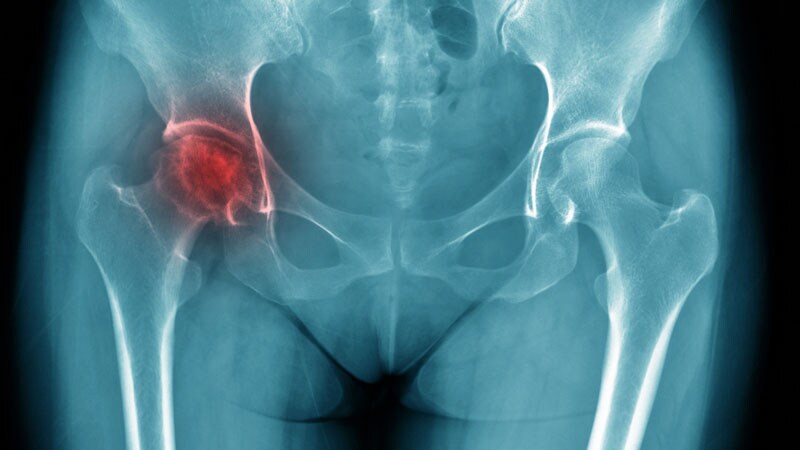Takeaway
- Risk for hip fracture was low in the year before total knee replacement (TKR), and rose to 26% in the year after TKR compared with in individuals without TKR in this nationwide cohort study.
- Subgroup analyses find elevated risk for trochanteric fractures and for people aged <75 years in the 10 years after TKR.
Why this matters
- Possible explanations include different knee kinematics after TKR, physical activity changes, fall risk, and other unknown contributors.
Study design
- A retrospective cohort study of all people born in Sweden in 1902-1952 (N=4,258,934) during 1987-2002.
- The study identified all patients with TKR as a result of osteoarthritis (n=39,291), and all patients with hip fracture (n=195,860) from the Swedish National Inpatient Register.
- Funding: University of Gothenburg.
Key results
- Compared with those without TKR, the risk (HR; 95% CI) for hip fracture was:
- Low in the year before TKR (0.86; 0.74-1.00); but
- 26% higher the year after (1.26; 1.11-1.42).
- Elevated risk (HR; 95% CI) for 0-10 years after TKR was found for these subgroups:
- Trochanteric fractures (1.13; 1.06-1.21).
- Age 50-74 years (1.28; 1.13-1.46).
- Compared with the year before TKR, the year after was associated with 46% increased risk (HR, 1.46; 95% CI, 1.21-1.77).
Limitations
- Retrospective, observational design.
References
References


